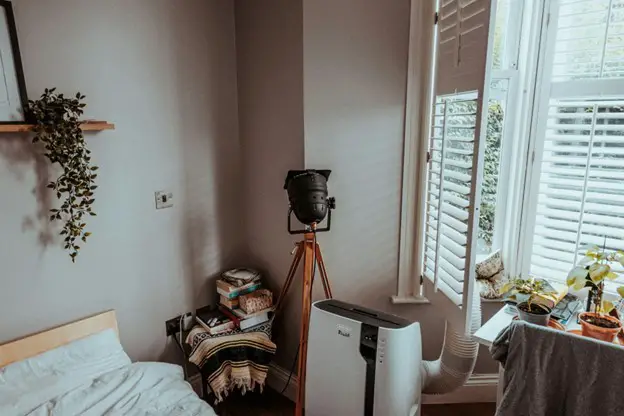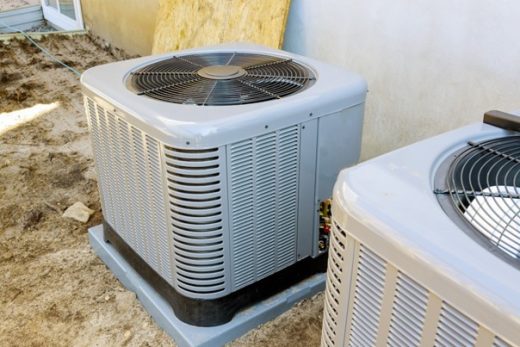Types of room air conditioners and how to choose HVAC advice, Heating ventilation and air conditioning tips, Get home heat guide
Types of Room Air Conditioners and How to Choose
21 March 2024
Whether you’re the type of person who just likes to be cool no matter how others around him feel during the summer, or you’re the person who likes all his guests to feel comfortable, there are air conditioners to meet everybody’s needs.
If you’re looking for a personal touch, you’ll probably opt out for an evaporative cooler you can put on your desk. But, if you want to get the entire home cool, you’ll look into other solutions that are suitable and sustainable.
Components of Room Air Conditioners
As a machine, an air conditioner has different components that help bring cooler air inside and make you feel more comfortable. It depends on the type you choose, but most of them, including the one in your car, have a:
- Evaporator and condenser coils: These two are the ones responsible for the entire process, one helps cool the air and another dissipates the heat from the first one.
- Compressor: The compressor drives the refrigerant into the coil and helps it absorb the heat.
- Water reservoir: This is usually a component in evaporative coolers, it holds the water that is used in the cooling process.
- Air filter: All air conditioning systems have an air filter, it’s something that is used to maintain the quality of air, and you have it in your car as well.
- Water pump: Mainly used in evaporative coolers, they pump the water and help it circulate the system and speed up the cooling process.
Air Conditioning Prerequisites
Consider your insulation, and how the space is oriented before you jump into buying an AC or installing it. Apart from that, you should also consider the usual level of humidity in that space.
You also need to pick the correct cooling capacity and make sure there’s a way for it to get the needed electricity. Still, the best AC for your home will depend on ventilation and insulation.
Think about other things as well, e.g. you’re in a small apartment and you don’t need an AC for every room, but you need to position it so that the airflow is adequate. The cool air needs to reach every room, so don’t place it facing a wall, place it facing a door.
Also, you need to take drainage into account and consider where the excess water is going to go. It’s easy if you opt for a system with two units and you have an outer unit that you can connect to a gutter for drainage.
Generic Air Conditioning Types
When we say generic, we mean most of the types known to us that we usually encounter daily and that are commonly used in buildings and households. These air conditioner types are currently available on the market:
- CAC: It’s a central air conditioning system. This is common in offices and large buildings. There’s one unit that does the cooling, and it’s spread through the building properly through vents.
- Mini-split systems: This is the most common air conditioning type, there’s a unit outside to handle the compression and a unit inside to handle the air, but it cools one room unless you open the doors and the airflow is aimed at the opened doors.
- Window air conditioners: They cool the room where they’re installed by taking out the heat from the room and getting the cool air into the room. It works kind of like a mini-split system but in reverse.
- Portable air conditioners: These air conditioners are usually based on evaporative cooling, but they can depend on other not-so-eco-friendly gases for cooling. Still, they’re a good choice when you want a budget solution and you don’t need an entire house cooled.
- PTAC: Packaged terminal air conditioners are used in large complexes and they can heat and cool. They’re usually installed through the exterior, but they’re extremely efficient.
- Heat pumps: They’re a cheap and efficient solution because they use geothermal energy to heat and cool your apartment. It is cheaper than regular cooling or heating systems because it doesn’t primarily rely on electricity.
- Evaporative coolers: These are also known as ‘swamp coolers’ because they use vapor to cool down the air. If the air is dry, the water will cool it as it evaporates, kind of like how sweating works.
- Smart air conditioners: They are pretty much the same as all the rest, the only difference is that they can connect to the internet and we can control them remotely to set the temperature before we arrive.
Choose Based on How You Experience Heat
It’s important to think about how you experience heat before choosing an air conditioning type. Is it the high temperature of the area, or is it the humidity? Even at lower temperatures with increased humidity, the subjective feeling of heat can be intense.
The third thing you should consider is the type of cooling that would be most comfortable. Is it airflow or is it something else? Would you need a lot of fans to cool you down, or would you feel better if there was water being sprayed when cooling the room? These are all genuine questions, and they’ll help you choose the right system.
Types of Room Air Conditioners
So, even though we’ve spoken about the generic types, there’s a subset of room air conditioning types. The best way we can go about this is if we tell you which type you should choose for a particular situation:
- Fresh air and cooling: Window air conditioners are the perfect type to choose if you want fresh air coming in while being cooled. But they’re not feasible in rooms without windows.
- Personal cooling: In this case, you should use evaporative coolers to just cool yourself. Don’t cool the entire apartment, although it would be a comfortable environment, you should focus on yourself and save on energy.
- Windowless rooms: Choose the through-the-wall air conditioners. There are no windows, so it’s either this, or you can choose from different types of portable room air conditioners. So, it’s more or less the same as personal cooling.
- Flexible cooling: If you want to move around and still feel cool without actually installing large air conditioning units, you should opt for a portable air conditioner or a personal one which are the same thing, but they come in different sizes.
- Preconditioning: For this type of situation use an air conditioner you can connect to WiFi and control from wherever you are so that the room is cool when you get home.
Types of room air conditioners and how to choose Conclusion
Try to choose the air conditioner type for your room based on what you need. The best way to do it is to figure out how much money you’re willing to spend, and what exactly is the type of cooling you enjoy the most.
Comments on this guide to Types of room air conditioners and how to choose article are welcome.
HVAC – Air Conditioners
Air Conditioners Posts
Why Rely On Professionals For Air Conditioning, Heating, HVAC
HVAC Systems in Modern Architecture
5 great advice from top rated HVAC contractor
Buildings
Residential Architecture Articles
Comments / photos for the Types of room air conditioners and how to choose HVAC for your business – Air Conditioning, Heating units – Buildings Temperature Control page welcome




